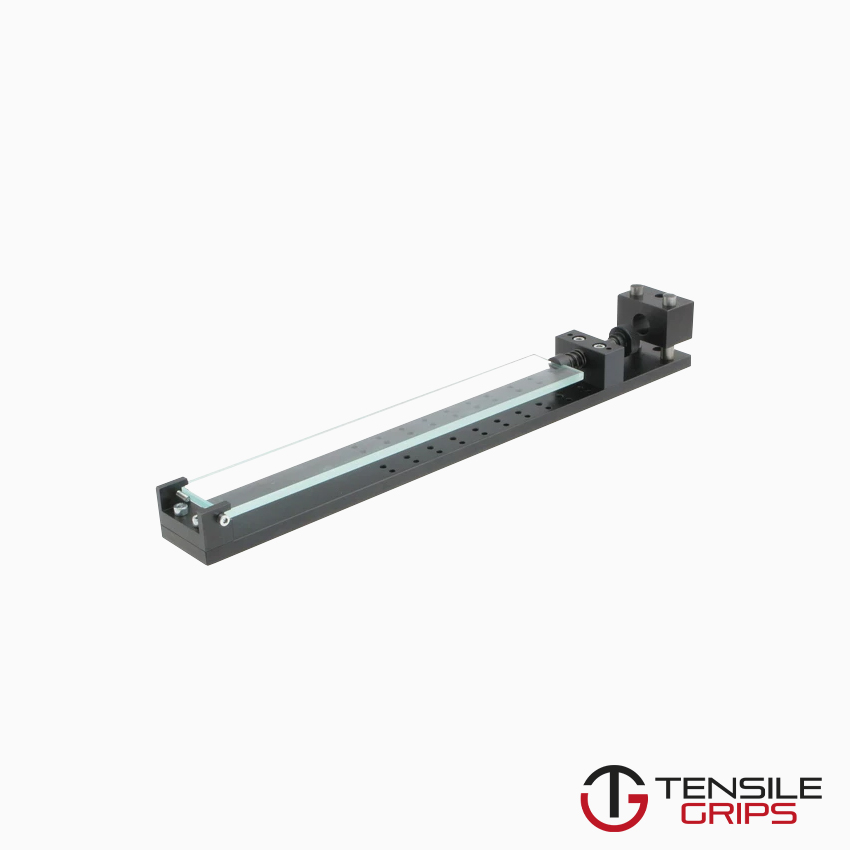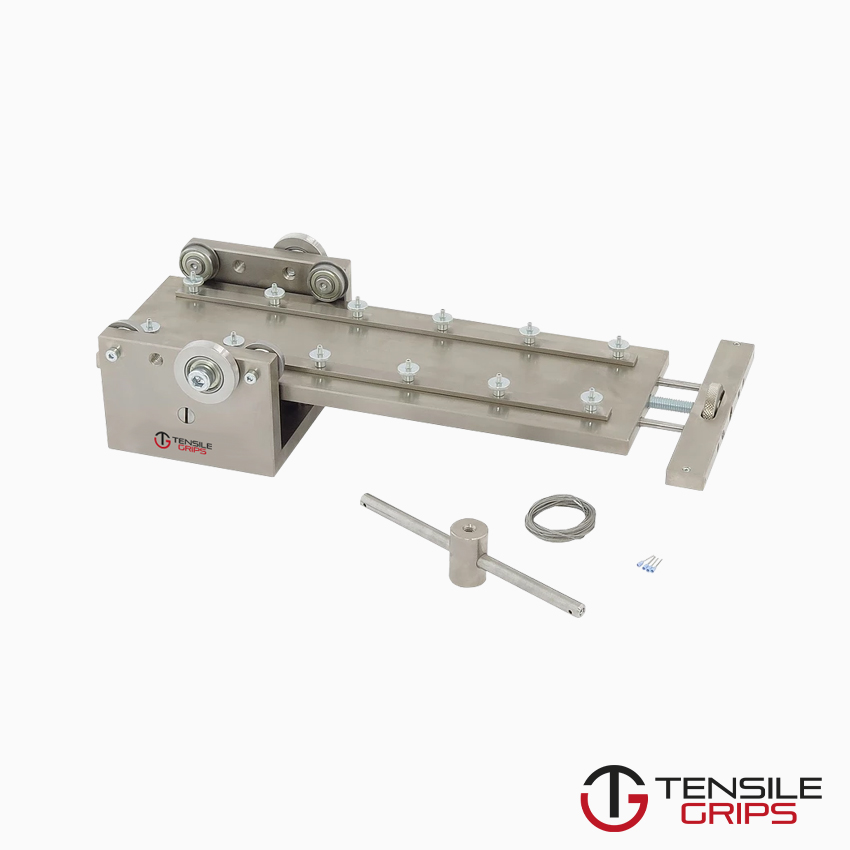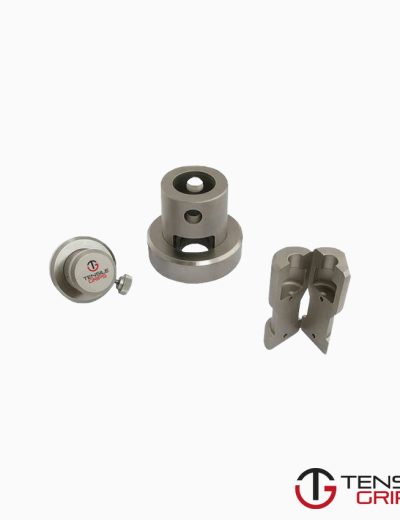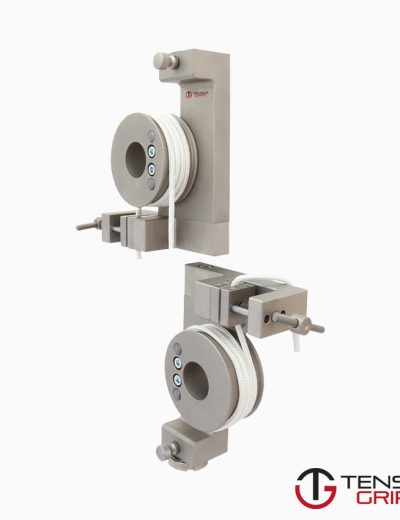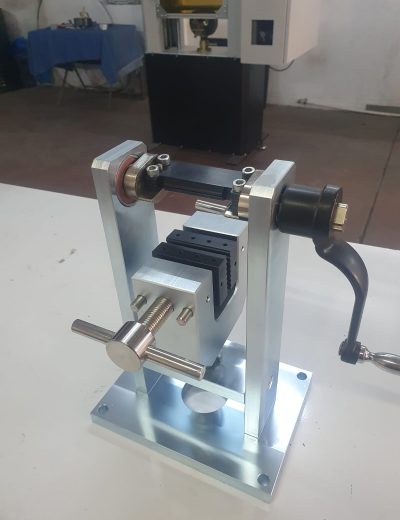ASTM D1876 Test Fixture
ASTM D1876 – This test method is the most common peel test because it does not require any additional equipment beyond the grips.
Please Contact With Us For More Information
ASTM D1876 – Standard Test Method for Peel Resistance of Adhesives (T-Peel Test)
ASTM D1876 – This test method is the most common peel test because it does not require any additional equipment beyond the grips.
This test is optimized for tapes with flexible backings, or tapes that are adhered to a similar flexible substrate.
Unlike the 180 degree peel test and 90 degree peel test, the T-peel or trouser method is the easiest test to set up and conduct.
These types of tests are often done on transfer tapes or at converting companies that may use tape to attach to foam or plastic materials.
Most tapes are made using a roll to roll manufacturing process. Identifying problems between each process roll can cut down on scrap and improve overall yield
rates.
Most companies do not test between each manufacturing stage, however new technologies like roll-to-roll printed circuits may require this type of rigorous QC and
validation.
ASTM D1876 – Geometry
Almost all tape tests use the standard similar geometry as it relates to the width of the sample.
ASTM D1876 – Solution
Vise grips with rubber or serrated grip faces are often used to hold the end of the tape.
Wedge grips can also be used to some degree, especially if the material is slightly thicker and very high in strength. In rare cases, a wrap grip may need to be used
the tape is unsupported and the un-peeled section droops down. If the un-peeled section is supported, it will affect the results.
There are many variations of peel testers including both upright and horizontal style machines.
Analysis
Tape test results are given as an average of the peel strength. For average purposes, a middle portion of the data is used and taken as good data.
Along with the AVG. quality managers and process engineers may look for common drop off points, or reoccuring data patterns.
Most tapes are made using a roll to roll manufacturing process.

